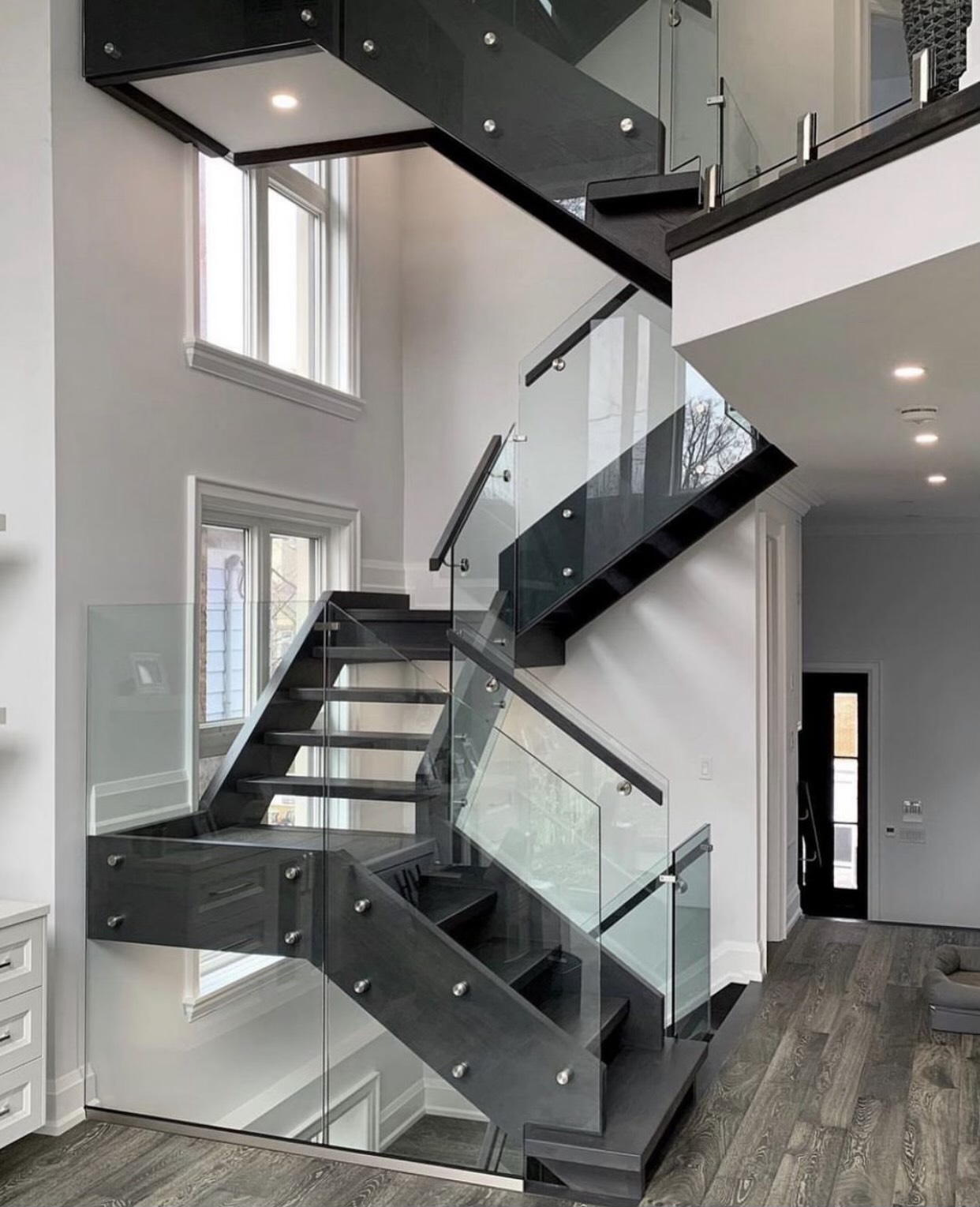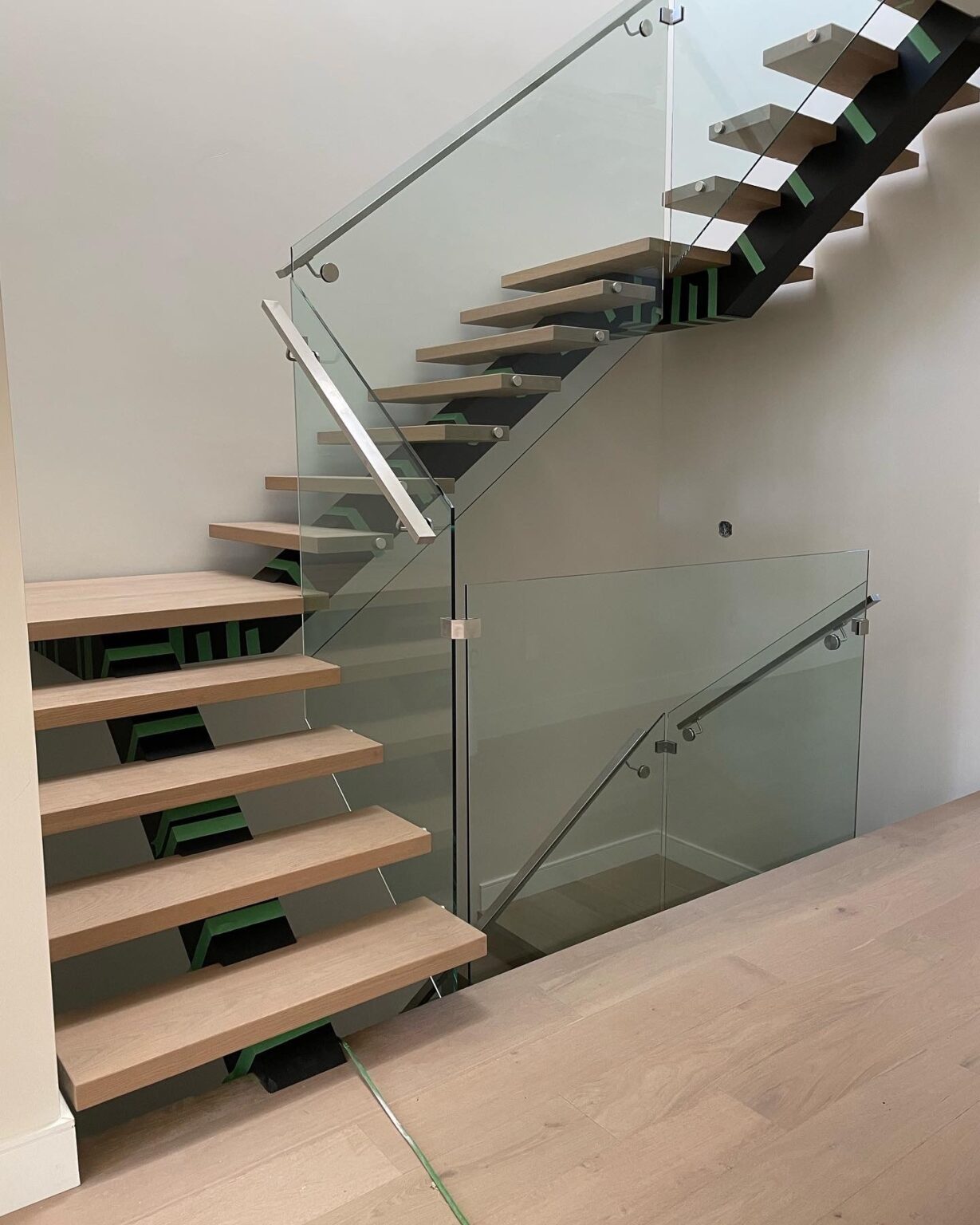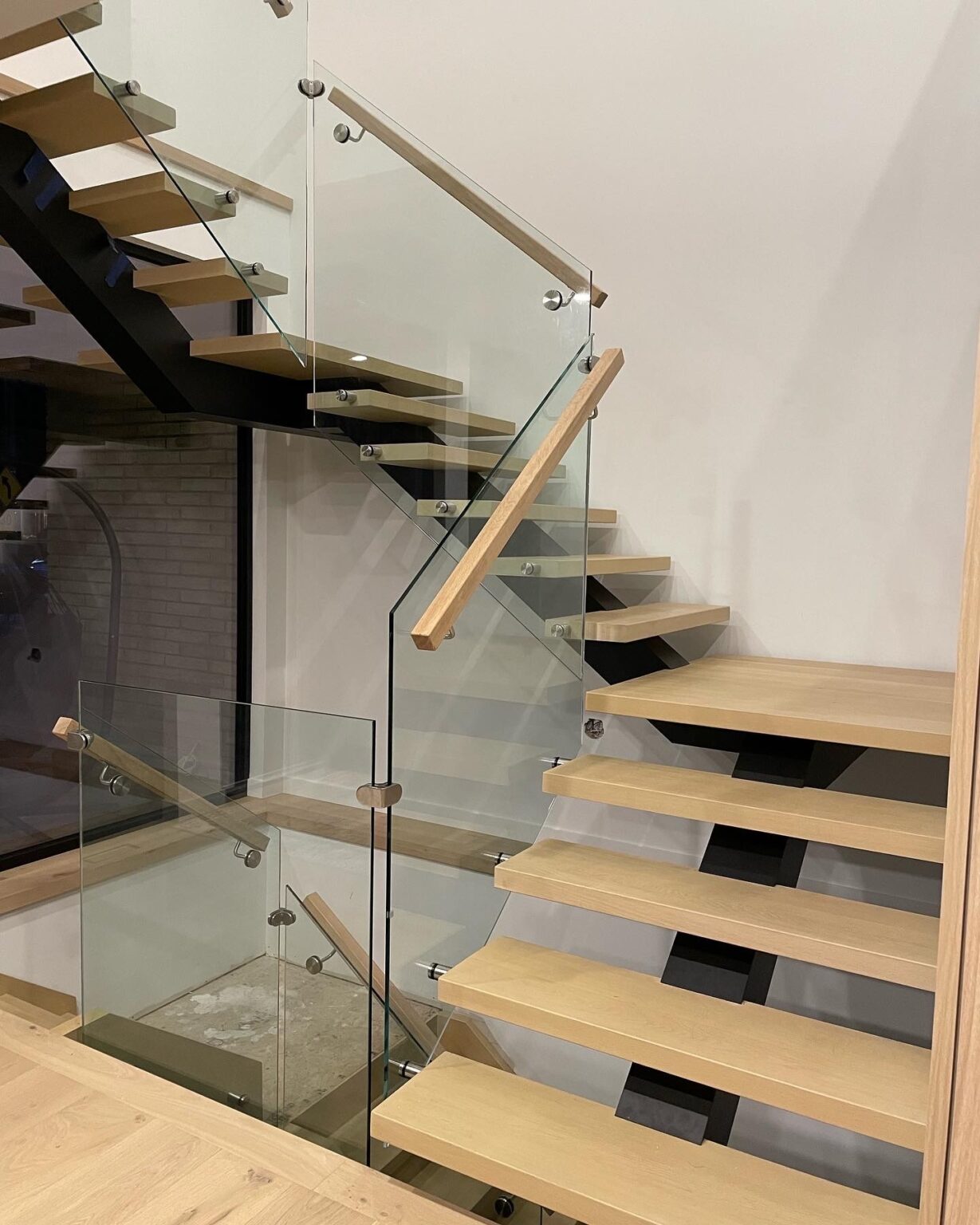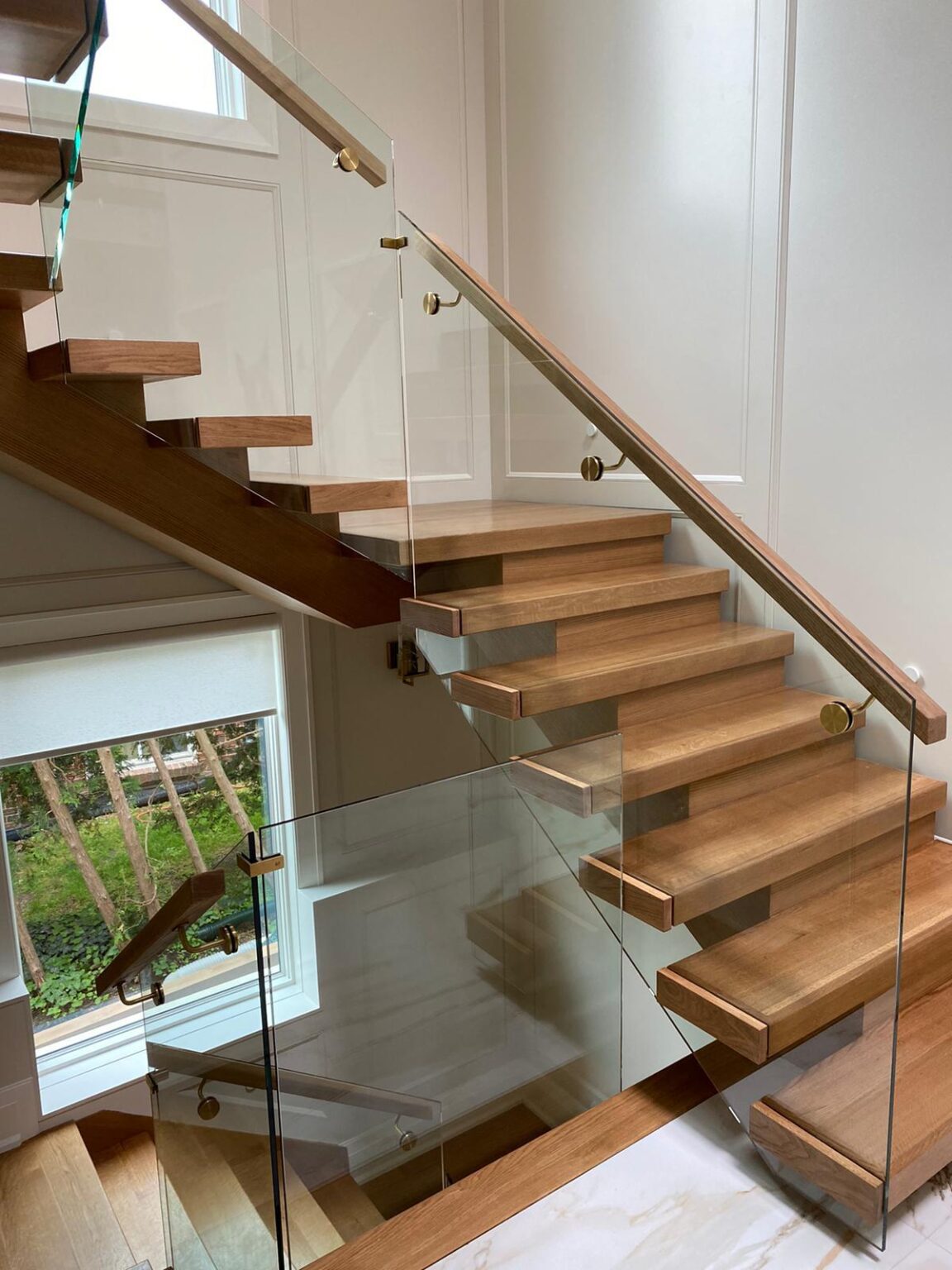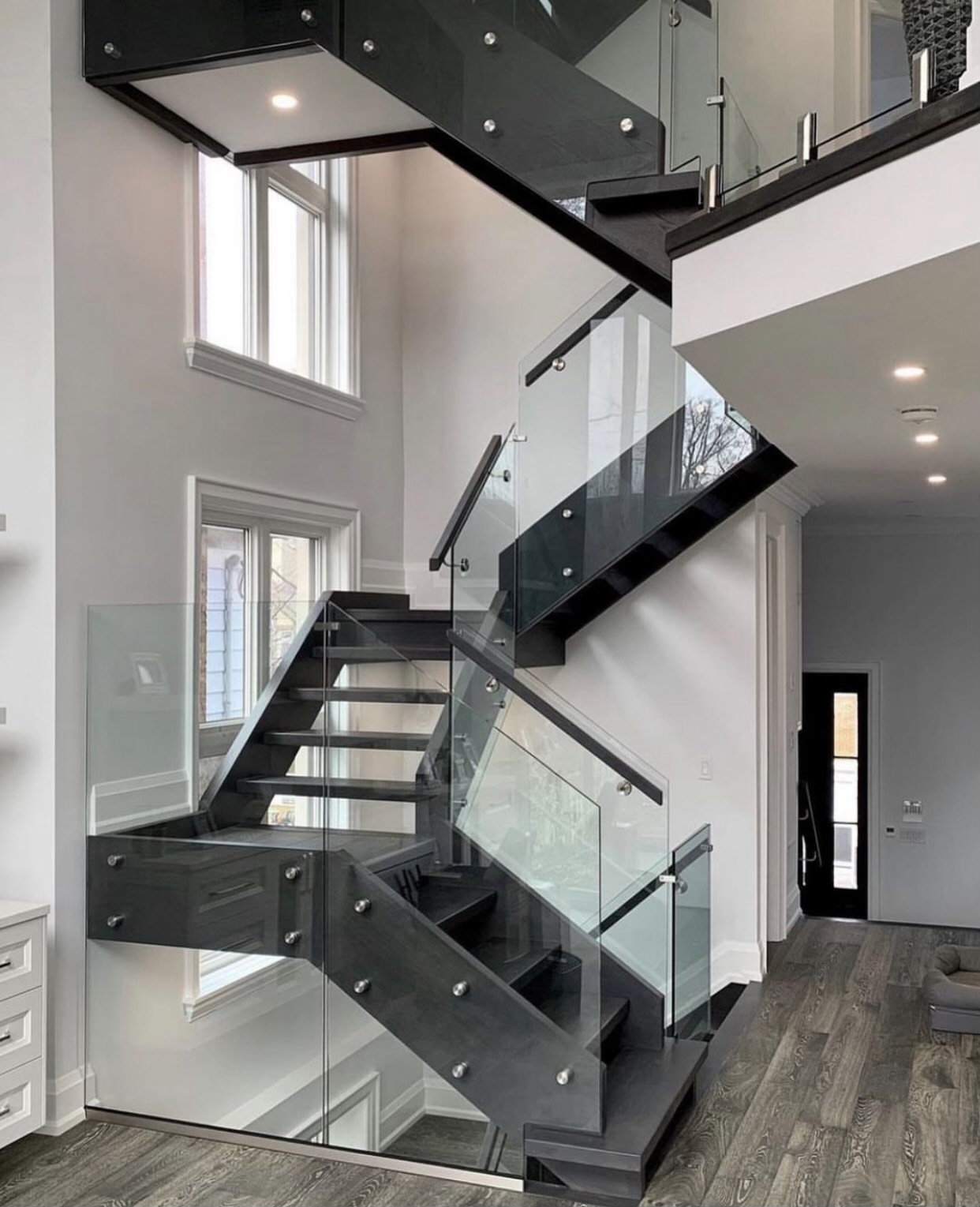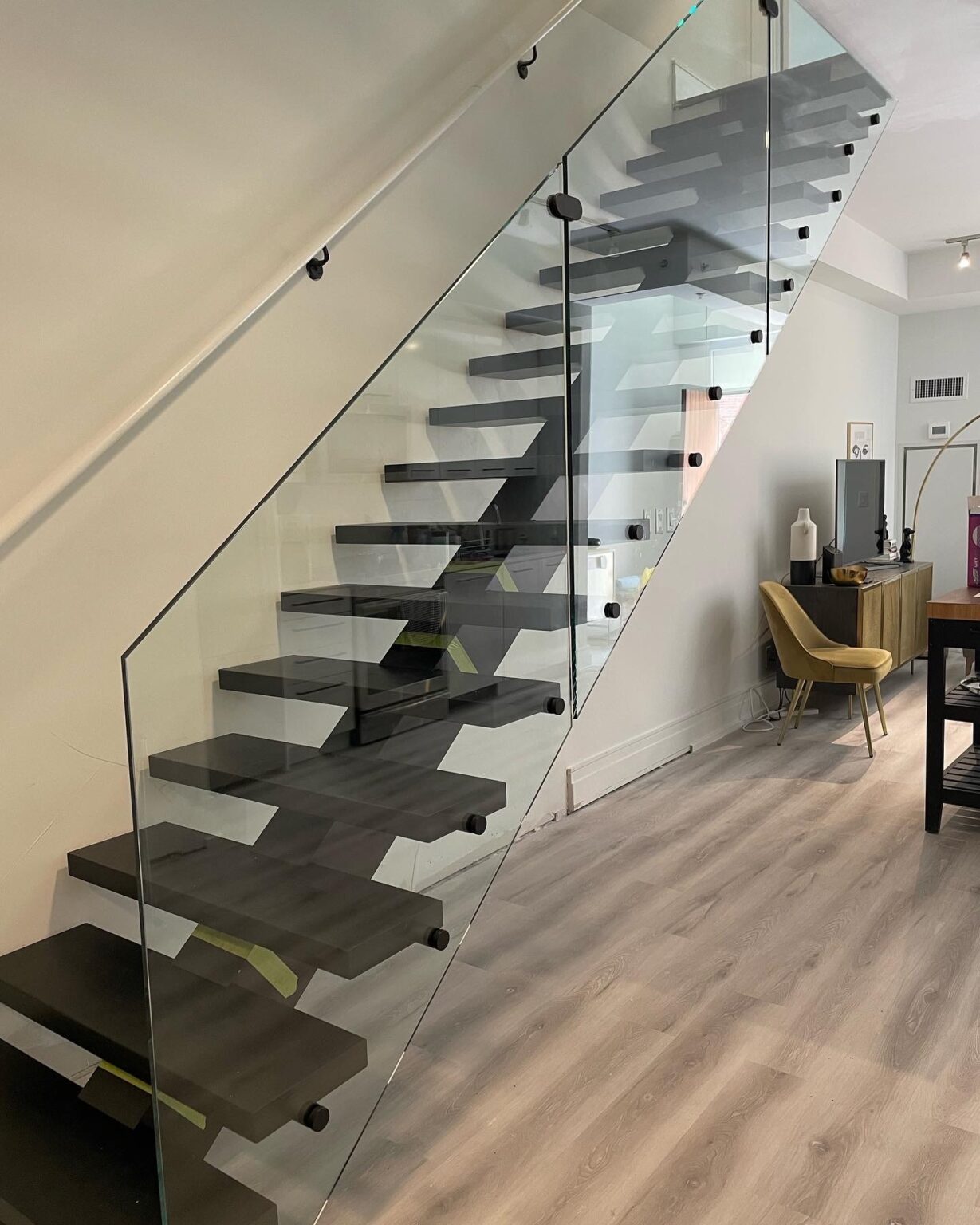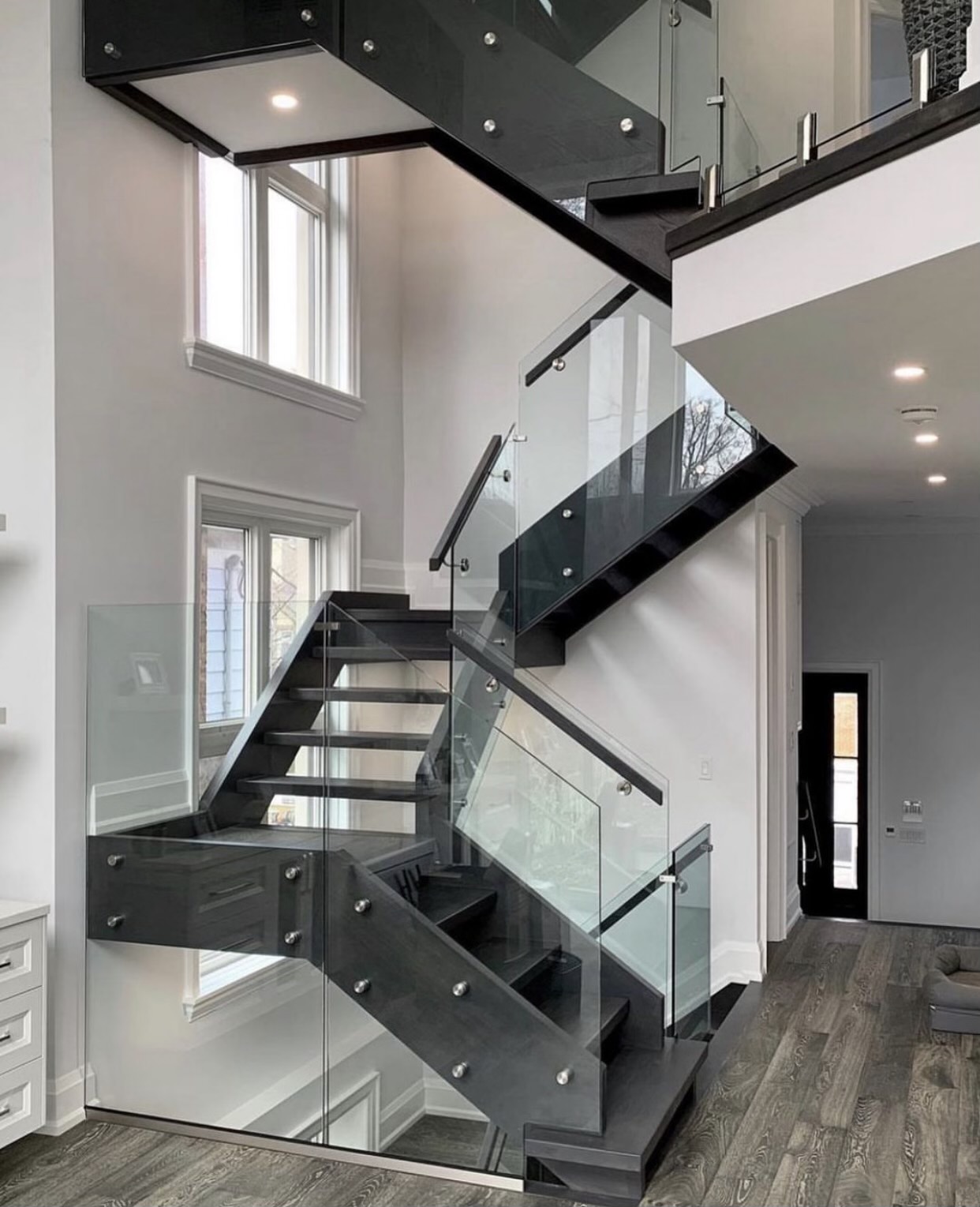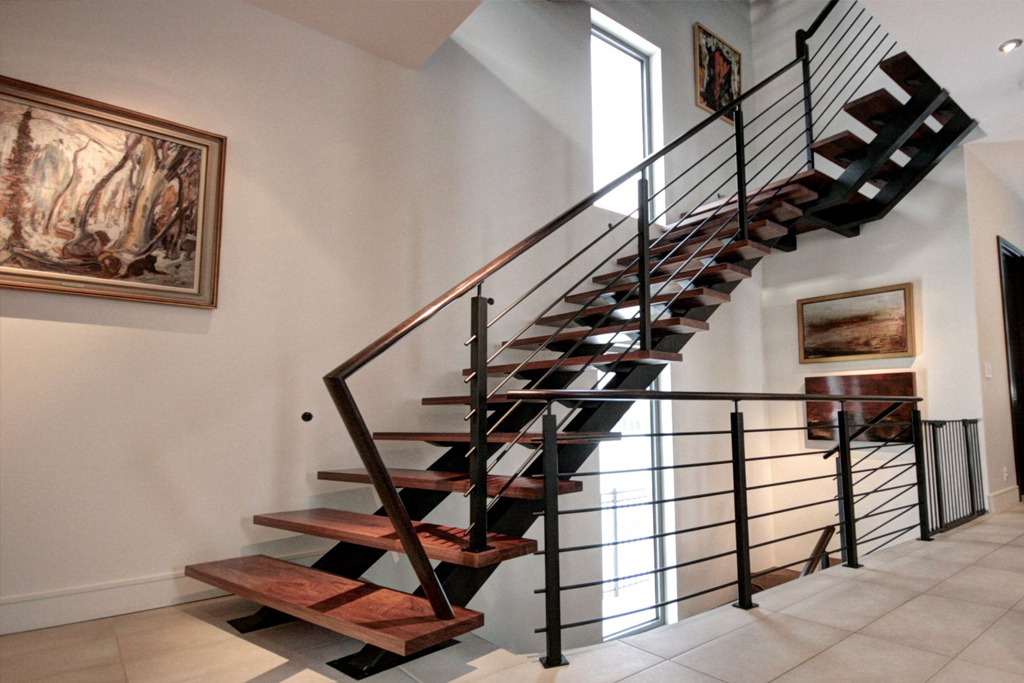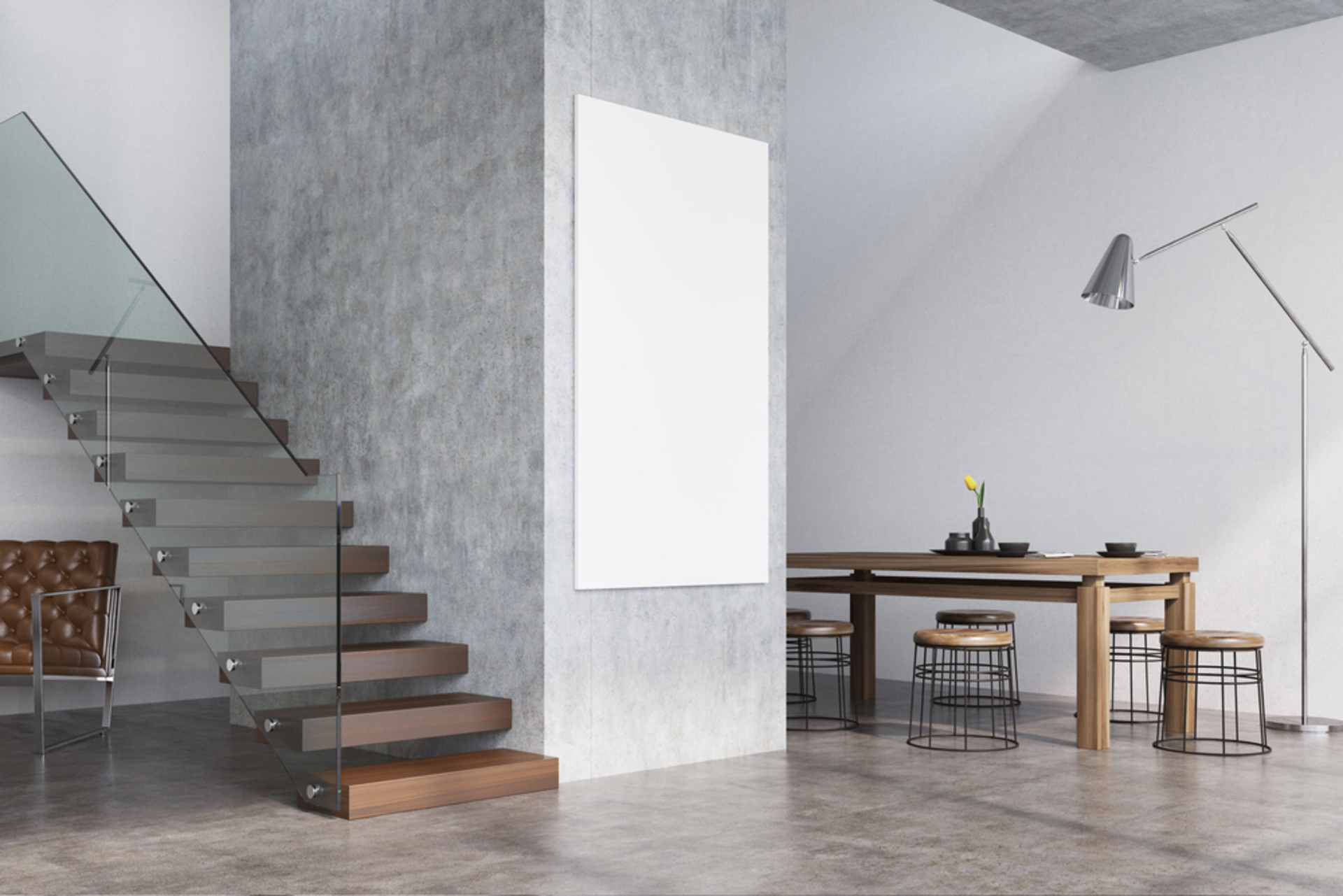Frequently Asked Questions
The speed at which stairs can be installed in a house will depend on a number of factors, including the size and complexity of the stairs, the availability of materials and tools, and the skill and experience of the installers.
In general, a simple straight staircase with prefabricated treads and risers can be installed relatively quickly, possibly in just a few hours. A more complex staircase with custom-made treads and risers, or one that requires extensive framing or other structural work, will take longer to install.
It's important to note that the installation of stairs is a complex task that requires careful planning and attention to detail to ensure that they are safe and meet building codes. It is generally best to hire a professional contractor with experience in installing stairs to ensure that the job is done properly.
There are a few things you can do to prepare for new stair installation:
- Measure the space where the stairs will be installed to ensure that you have the correct dimensions for the staircase.
- Consult with a professional contractor or engineer to determine the appropriate type and size of stairs for your home.
- Obtain any necessary building permits and make sure that your proposed staircase meets all local building codes and regulations.
- Clear the area where the stairs will be installed to provide ample space for the contractors to work. This may involve moving furniture and other items out of the way.
- Consider any special needs or requirements you may have, such as handrails or railings for safety or accessibility.
- Make sure you have a clear and detailed contract with the contractors outlining the scope of work, materials to be used, and the timeline for completion. This will help ensure that the installation goes smoothly and meets your expectations.
Installing new stairs in your home can potentially increase its value, as it can be viewed as a desirable feature by potential buyers. Stairs are a functional element of a home that serve as a primary means of access between different levels. A well-designed and constructed staircase can add visual appeal and value to a home, particularly if it is made of high-quality materials and is in good condition.
However, it's important to keep in mind that the extent to which new stairs will increase the value of your home will depend on a variety of factors, including the overall condition and value of your home, the style and materials of the stairs, and the local real estate market.
Risers are the vertical boards that make up the back of each step on a staircase. Stringers are the diagonal boards that support the treads and risers and provide stability to the staircase.
In a typical staircase, there are two stringers, one on either side of the stairs. The stringers are usually made of strong, durable lumber and are attached to the treads and risers using nails or screws. The stringers are usually spaced apart at a distance that corresponds to the width of the staircase and are attached to the structure of the building to provide additional support.
Risers are usually made of the same material as the stringers and are attached to the stringers using nails or screws. They are typically spaced at regular intervals to form the steps of the staircase. The height of the risers, along with the depth of the treads, determines the height of the steps and the overall height of the staircase.
There are many different types of stairs, and the most popular type may vary depending on the location, style of the building, and the intended use of the stairs. Some of the most common types of stairs include:
Straight stairs: Straight stairs are the most common type of stairs and consist of a series of straight steps leading from one level to another.
L-shaped stairs: L-shaped stairs are a type of straight stairs that turn a corner at some point along their length.
U-shaped stairs: U-shaped stairs are a type of straight stairs that have a landing or platform in the middle.
Spiral stairs: Spiral stairs are circular stairs that are usually made of metal and are compact and efficient for small spaces.
Winder stairs: Winder stairs are stairs that turn a corner but do not have a landing or platform.
Helical stairs: Helical stairs, also known as curved stairs, have a continuous, curving tread and a central pole or stringer for support. They are often used in modern, open-plan spaces.
Floating stairs: Floating stairs are supported by a single central beam or a series of hidden supports and appear to float in mid-air. They are often made of wood or metal and have a minimalist design.
There are many different types of stairs, and the most popular type may vary depending on the location, style of the building, and the intended use of the stairs. Some a
The cost of new stairs will depend on a variety of factors, including the size and complexity of the stairs, the materials used, and the labor costs involved in the installation. Some other factors that can affect the cost of new stairs include:
The type of stairs: Different types of stairs, such as straight stairs, spiral stairs, or floating stairs, can have different price points.
The materials used: The cost of new stairs can be affected by the materials used, such as wood, metal, or concrete. Different materials can have different price points and may require different levels of maintenance.
Customization: Customized features, such as handrails, balusters, or decorative elements, can increase the cost of new stairs.
The location: The cost of new stairs may vary depending on the location of the home and the availability of materials and labor in the area.
of the most common types of stairs include:
Mono-Stringer stairs
Floating Stairs
Cantilevered stairs
Waterfall stairs
Zig-Zag stairs
Cities We Service
Toronto Modern Home Stairs Clients
-

Highly Recommended!
The team at Toronto Modern Stairs did an amazing job with our customer new staircase. Not only did they deliver the project on time but the attention to detail was unmatched!AmandaTwin Stringer Stairs
-

Amazing Custom Stairs
We had the team at Toronto Modern Stairs install our new Cantilever stairs. They provided a seamless experience from start to finish with no hiccups. Highly recommended!MiloCantilever Stairs
-

Glass Railings Are Amazing
We had Toronto Modern Stairs install glass railings with our new custom stairs and couldn't be happier with the results. The team at Toronto Modern Stairs did an outstanding job.Sandra -Great Craftsmanship




Ready to get started?
Your journey to new stairs starts here. Start with a free consultation to see if our stairs design and installation experts are the perfect fit for your project.
Call Us: 416-839-8416
Email: info@torontomodernstairs.ca
Address: 1518 Bayview Ave, Toronto, ON M4G 3B4
